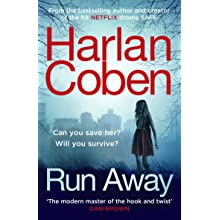A
week passed without any opportunity to steal one of the guards' mobile
phones. My target was the skinny guard with an oversized uniform. (Ichabod Crane in 3D). After returning from the coal mines every afternoon, the twerp could be
seen smoking in the back of the administration building. My Irish friend, Sean, was an
accomplished pick-pocket, so it was only a matter of distracting the little
dude for Sean to swipe it. We needed another plan, for this
one was just too risky.
Over
the week, more busloads of the unvaccinated arrived at the camp. I
observed that most were immigrants and indigenous people and very few Caucasians. I talked with one gentleman who had come from
Syria to Australia with his family in 2014. Since that time, he had
been naturalized, including his entire family. Ahmed had been a
medical doctor in Damascus. Over the years, he retrained at the
University of Melbourne in medical school and received his
license to practice medicine in Australia in 2018. When Covid 19 hit,
he was not convinced that the vaccine was needed to stop the spread
of the virus. Like many of us, he read the peer-reviewed studies to
discover the vaccine did not prevent one from getting sick or giving
it to others. Of course, the elderly were more vulnerable; thus, the
vaccine made sense. Ahmed's family, including himself, were all
relatively young and healthy. After the lockdowns, he was told that he would lose his medical practice if he didn't take the jab.
Ahmed's daughters were also kicked out of school. Two months after
his medical practice was shut down, the police crashed through his front door
dressed in helmets and bulletproof vests. He and his entire family
were thrown to the ground and handcuffed. After spending 6 months in
a local detention center, they were shipped to the camps.
The
government seemed to us to be targeting people of color. But, interestingly, Sean, the Irishman, and I were the only white boys in
the facility.
This
didn't seem right, but this entire situation was idiotic, where
there felt like an unknown nefarious agenda behind the mandate
camps. The science did not match the actions of the government. So what the hell are we really doing here?
One
thing was clear: the government and their corporate overlords were
getting free labor in the coal mines. So, yes, essentially, we're slaves.
One
night Sean woke me out of deep sleep and showed me a phone he
had stolen. Then, like a thief in the night, he sneaked into the
guards' quarters and managed to obtain a phone.
"C'mon, mate. It will be sunrise soon, so we have to get out of here now!"
My
bag was already packed. We headed to the north end of the wall. We
got there without being seen. I gave Sean a boost, and he barely
reached the top of the wall. He reached down and pulled me to the top
without too much effort. We shimmied under the bob wire and fell to
the ground running.
A few minutes later, a siren could be heard behind us. We
were in an open space in the desert. There was no place to hide. We
just continued to run. Looking back, two jeeps were barrelling
towards us with clouds of sand billowing behind them. Suddenly through
a loudspeaker:
"Stop, or we'll shoot!"
I
remember laughing at the idea of the guards shooting us because we
were not criminals.
I
heard a shot ring out. Sean fell face down into the sand. Because the
sun was appearing, I saw blood flowing and spreading on his back
from the gunshot wound.
"Sean,
Sean!" I knelt beside him, feeling for any pulse in his neck. My
friend was dead.
I was put in a hot box in the ground for three days with little
water as punishment for attempting to escape.
Ironically, only a month later, a contingent of the Australian army
rolled into the camps. We were told that the vaccine, although
adequate for the elderly and vulnerable from getting really sick,
the world had come to understand that we now must live with the
disease. The vaccine made no difference for the majority of the
population. And without so much of an apology from the government, we
were set free in our respective cities.
What
were the world's governments thinking, ignoring the science and
pushing untested vaccines upon the population? Adding insult to
injury, sending us to "mandate camps" because we were deemed the
"unwashed" like lepers in the 14th century. It was an emotional affair when I was united with my family for the first time. Though jabbed twice with a booster, I learned that my wife's brother died of Covid 19 due to complications from a previously
undiagnosed condition. This was very sad.
This
experience has broken my spirit. It's currently
mandatory to have Digital Identification on our phones. All our
financial transactions, including our working wages, are done through
this app. If we want to go on holiday, we have to go through the app.
We buy our groceries and clothes through the app. All healthcare must
go through our digital ID. So the authorities know where we are on the
planet at any given time. Our independence is gone.
I don't care anymore. My
spirit is broken. I never want to go through this shit again.
Most
of all, I miss my friend.























